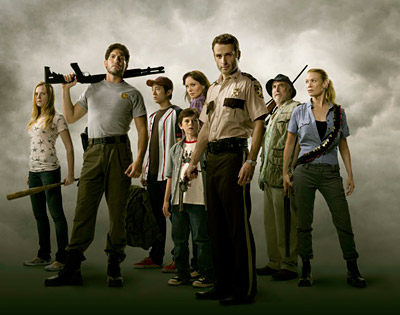The State of TV
By Bert Ehrmann
May 20, 2011
As the 2010-11 TV season wraps up this month, it's the perfect time to look back at the season, analyze what worked and, more importantly, what didn't work.

Dramas: What Worked
While many of the top TV series this season were reality shows, a good portion of the top-rated series were network dramas. Shows like NCIS, The Mentalist and CSI all found ratings success. And with those shows, CBS seems to have found a secret formula for creating hits.Of the top 20 scripted shows this season (including comedies) only two were series not airing on CBS.
While dramas on cable don't pull in as many viewers as network ones, there's still plenty of interesting shows there. Series like The Walking Dead, Game of Thrones and Mad Men are all critically acclaimed and The Walking Dead a ratings hit as well. It seems that while networks chase a larger audience, and hence a larger share of the advertising dollar, cable is happy to capture a smaller, more focused slice of the viewing public.
What Didn't Work
While dramas on CBS might be the most successful scripted shows on network TV, I wouldn't exactly call these series unique or all that interesting. CBS has found great success in a type of old-school procedural drama that finds big ratings, though not a critical appeal, and has unrelentingly pushed this concept forward from show to show year to year.
Though CBS might have found ratings success, none of the new dramas on NBC or ABC have found much of an audience and many have already been cancelled or are facing cancellation.
The Solution?
It seems to me that rather than relying on tried and true formulas for dramas (read cop procedural shows where the good guys always get the bad guys in the end) the networks need to take some chances next season and develop series that have a unique voice, and hence a chance to break from the monotonous pack. And, to a certain extent this seems to be happening with some of the shows in the works for next season.
Still, for every interesting new series that may be in the works there's one like the remake of the TV series Charlie's Angels or the return of Wonder Woman that calls a meaningful recovery into question.

Comedies: What Worked
Almost exactly like with dramas, CBS has the most comedies in the top 20 shows this season with Two and a Half Men and The Big Bang Theory. And ABC has found a hit with Modern Family that just cracked the top 20 shows this season.
On cable, series like It's Always Sunny in Philadelphia, The League and Childrens Hospital continue to push the grounds of funny and have become some of the most talked about shows on TV.

What Didn't Work
While once the sitcom ruled supreme on network TV, it's now relegated to the background with only a few shows finding much ratings success there. And while some new shows did impress this season, not one became a breakout hit like Modern Family did last season.
The Solution?
The current model of TV comedy seems to be broken. As it stands now, series are green lit by the networks and go into production with, if successful, a 24 episode season to look forward to. But, what's happened as of late is that shows start strong with a lot of promise only to fail deliver with future episodes or fizzle and fade creatively after a season or two leading to disappointment.
I honestly think the networks should at least try the cable model for some of their comedies next season. With this model, a series is guaranteed (say) a ten episode season with all episodes airing no matter the ratings. This gives an audience more of a chance to discover the show and makes it less likely the creators of the series will be running out of ideas as to what to do nextbefore the end of the first season.
I doubt that many networks will go this route, though. While NBC did find success with The Office using this model, I think most network execs see a limited season on a successful show as a money-looser, as fewer episode means less ad dollars. Network execs should remember this; cancelled shows produce NO revenue other than a few DVD sales.